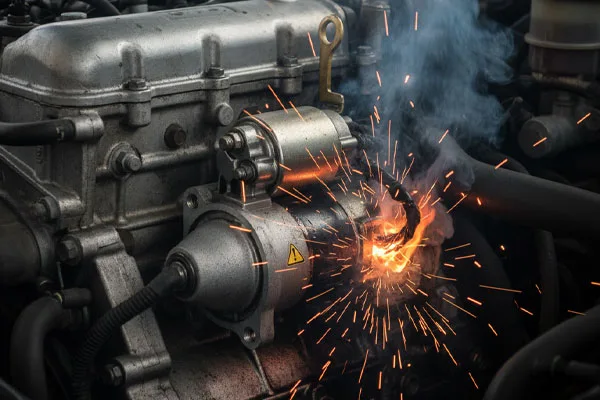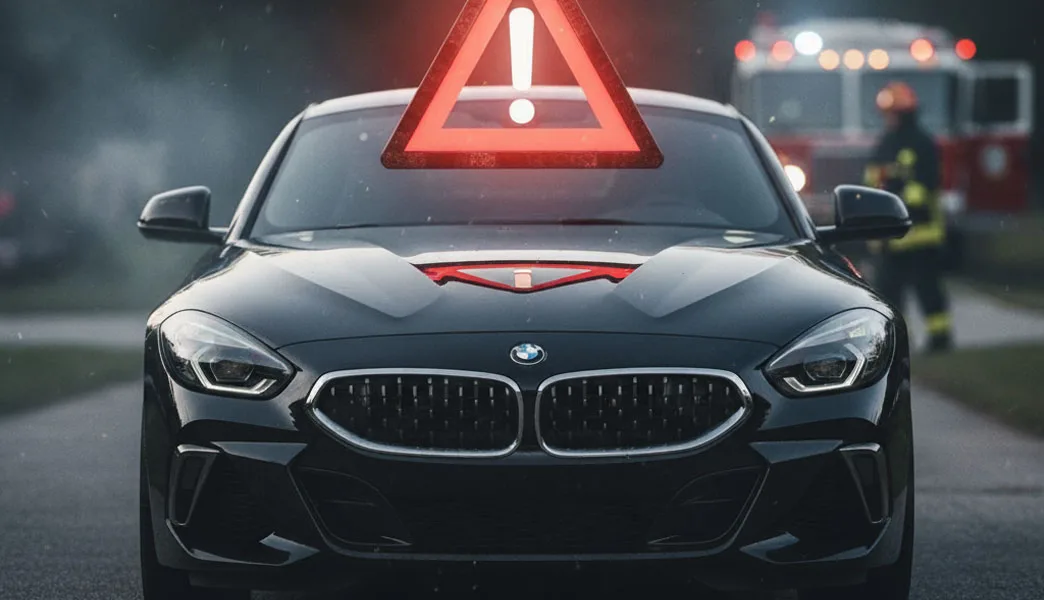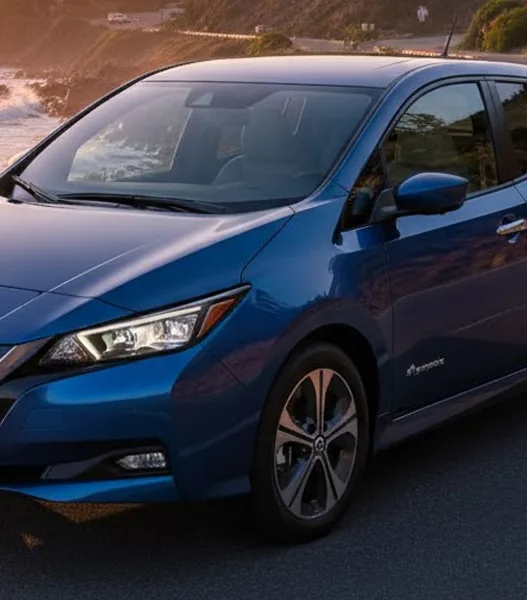According to the National Highway Traffic Safety Administration (NHTSA), BMW recalled nearly 200,000 vehicles due to a fire risk whether the cars are being driven or not. The recall was issued for vehicles with model years 2019-2022.
A corroded engine starter relay led to overheating and a short circuit, which increased the risk of a fire, the NHTSA said. To fix the issue, BMW dealers will replace the engine starter, free of charge.
Owners of affected vehicles have been asked to park their vehicles outside and away from buildings and other vehicles until the issue has been resolved, according to the recall report. Continue reading the article to reveal the complete story behind the BMW fire risk recall.
How Many BMW Vehicles are Recalled?

According to the NHTSA, around 196,355 BMWs, along with 1,469 Toyota Supra vehicles, have been recalled. The recall included certain 2019-2022 model years.
- 2019-2021 BMW 330i
- 2019-2022 BMW Z4
- 2020-2022 BMW 530i, X3 and X4
- 2021-2022 BMW 430i and 430i Convertible
- 2022 BMW 230i
- 2020-2022 Toyota Supra
If you want to learn about other major recalls affecting the BMW Z4, X3, and X4 vehicles, check out these recall reports: BMW Z4 recalls, BMW X3 recalls, and BMW X4 recalls.
What is the Reason Behind the Recall?
As discussed before, the reason behind the recall is fire risk, caused by a short circuit in the engine starter relay.
BMW’s Year-Long Investigation into Fire Risks
According to the recall report submitted on September 23, 2025, it all began with an engineering investigation on July 2, 2024, based upon continuous field monitoring and field cases involving vehicles that experienced a thermal event. The vehicles involved were a 2021 BMW 5 Series and a 2020 BMW 3 Series equipped with the same engine type.
During the investigation, it was found that the positive battery cable connection to the engine starter was either damaged or not connected. Between September and November, there was an additional analysis, indicating that the damage to the vehicles was likely to have occurred before the thermal event, either by an accident or an improper repair. It was found that the root cause of a damaged engine starter could be external.
In December, further analysis reported the hypothesis of water ingress to the starter, but it did not result in immediate overheating of the starter.
Between February and July, BMW continued to monitor its vehicles and reviewed past field reports, especially cases where fire risks weren’t fully explained. In March, the automaker looked into three incidents involving the 2020 BMW X3, X4, and 3 Series.
Later in May, two field incidents were reviewed, both with 2020 BMW 3 Series models. Bench tests were conducted to see if water could leak into the starter and cause problems. In July, two additional field incidents were reviewed involving the 2020 3 Series and X3.
Complete vehicle tests were conducted to check production and supplier records to identify affected vehicles. On September 16, 2025, BMW announced a voluntary safety recall. However, for the Toyota Supra, there have been zero field Technical Reports or warranty claims received from U.S. sources related to this problem.
How Dangerous It Could Be to Ignore a Short Circuit in the Engine Starter?

It could be extremely dangerous to ignore a short circuit in the engine starter, as it can cause an explosion that can seriously damage the car. If you ignore the short circuit for too long, it can cause the battery to overheat and explode, which would release toxic chemicals into the environment.
What Caused the Short Circuit in the Engine Starter?
According to the recall report, the engine starter may corrode, causing overheating and a short circuit, increasing the risk of fire. There are other possible reasons behind the issue.
- Arcing: One of the most common reasons for a short circuit is arcing, when electric current jumps across an air gap, due to a break in the insulation surrounding the conductor. It can also happen when a wire comes into contact with a metal surface or when two wires come into contact with each other.
- Exposed to Moisture: If exposed to moisture, it can damage the insulation, causing wires to come into contact with each other, ultimately leading to a short circuit.
- Worn Components: The internal components of the engine starter, such as the carbon brushes and collector, are subject to high loads. Over time, these components can wear out, leading to faults and short circuits.
- Overloading: If you apply excessive current to the starter, such as cranking the engine for too long, it can overload the electrical components, ultimately leading to a short circuit.
- Faulty Solenoid: Sometimes, the solenoid switch, which is responsible for controlling the starter’s operations, can also develop a fault or short circuit due to the disruption of the electric flow.
Common Signs Your Car Has a Short Circuit
Several signs indicate that there is a short circuit in your car’s engine starter.
- Your car’s interior lights or dashboard lights start flickering or dimming unexpectedly.
- Smoke or a burning smell is coming from under the hood.
- Your car’s electrical components, such as the radio, headlights, or turn signals, suddenly stop working.
- The starter motor may keep running even after the engine has started.
- A clicking or grinding sound comes when you start the vehicle.
What Should You Do When Your Car Has a Short Circuit?
As a short circuit in the engine starter can increase the risk of a fire or explosion, BMW has advised the affected owners to park their vehicles outside and away from buildings and other vehicles until the issue has been resolved.
You can also follow these steps to stay safe:
- First thing you have to do is turn off the engine and all electrical systems.
- Identify the source of the problem. You can check for loose or damaged wires and the fuse box.
- You can replace the fuse or remove any damaged section of wires.
- Use electrical tape or other means to repair damaged areas.
- Once you are done with the fixing, you should now test the repaired area to ensure it’s functioning properly.
Has BMW Reported Any Injuries or Accidents Due to the Short Circuit Issue?
Fortunately, there have been no accidents, deaths, or injuries reported due to the short circuit in the engine starter till now. However, one driver, who owns a 2022 BMW Z4, filed a complaint, stating that the manufacturer had exceeded a reasonable amount of time for the recall repair.
How Will BMW Fix the Short Circuit in the Starter?
To fix the issue, BMW will replace the engine starter free of charge, NHTSA said. Due to the availability of the parts, owners will be notified by letter scheduled to be mailed on November 14.
A second letter will also be mailed to the owners once the parts become available.
Wrapping Up
The BMW fire risk recall affecting nearly 200,000 vehicles is a critical reminder that even premium automakers are not immune to safety concerns. While BMW has taken steps to address the fire risk by offering free replacement of the engine starter, the responsibility now falls on the affected owners to act quickly and ensure their cars are inspected and fixed.
If you own a BMW vehicle that is on the recall list, you should immediately schedule an appointment with an authorized dealer to get the issue resolved. You may also contact BMW customer service at 1-800-525-7417.
However, Vehicle Identification Numbers (VINs) involved in this recall will be searchable on NHTSA.gov beginning November 14, 2025.
Sources: NHTSA, Fox Business
Frequently Asked Questions
1. Why Does BMW Issue a Recall for its Nearly 200,000 Vehicles?
BMW issued the recall due to a potential fire risk caused by a short circuit in the engine starter, which could pose a danger whether the car is being driven or parked.
2. Which BMW Models are Affected by this Recall?
According to the NHTSA, the recall covers a wide range of models.
- 2019-2021 BMW 330i
- 2019-2022 BMW Z4
- 2020-2022 BMW 530i, X3 and X4
- 2021-2022 BMW 430i and 430i Convertible
- 2022 BMW 230i
- 2020-2022 Toyota Supra
3. Is it Safe to Drive a Vehicle with a Short Circuit in the Engine Starter?
No, it is completely unsafe to drive a vehicle with a short circuit as it could lead to an explosion.
4. How will BMW Fix this Issue?
BMW dealers will replace the engine starter free of charge.
5. How Can I Check If My BMW is Part of the Recall?
You can enter your VIN on the BMW recall website or the National Highway Traffic Safety Administration (NHTSA) recall tool to see if your vehicle is included.
6. Will this Recall Affect the Resale Value of My BMW?
Generally, completing recall repairs promptly helps maintain your car’s resale value. Leaving a recall unresolved, however, can negatively impact buyer confidence.























